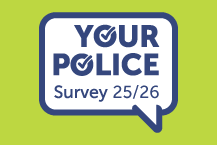Frequently asked questions
Q1. What is 101?
101 is the number to call to contact the police when it’s not an emergency. It is available 24 hours a day, 7 days a week.
Q2. What should 101 be used for?
You should call 101 if you want to talk to your local police officer, get crime prevention advice, or report a crime that does not need an emergency response. For example:
- If your car has been stolen
- Your property has been damaged
- You suspect drug use or dealing
- You want to report a minor traffic collision, or
- You want to give the police information about crime in your area.
Q3. Why was 101 introduced?
101 was introduced to improve public access to the police. It gives you a single, easy-to-remember phone number. It is for when it’s not an emergency.
Q4. How does 101 work?
When you call 101, you’ll hear a recorded message announcing that you’re being connected to Police Scotland.
You will also be provided with an option if you need to speak to another Police force elsewhere in UK.
You will be connected to the next available Service Advisor based within one of three Police Scotland Service Centres located in Glasgow, Motherwell and Edinburgh.
Calls to 101 will be prioritised in the same way as calls to existing non-emergency numbers.
Q5. If I am deaf, deafened, hard of hearing or have a speech impairment, can I call 101?
If you are deaf, deafened, hard of hearing or speech-impaired then you can access the service via TextRelay on 1 800 1 101.
Q6. If English isn’t my first language, can I still call 101?
Our Service Advisors have access to professional interpreters who can quickly translate if you cannot speak, or have difficulty speaking, English.
Q7. How much does it cost to call 101?
Calls to 101 are free no matter how long the call lasts, what time of day it is made or whether it is from a landline or mobile phone.
Q8. Does 101 replace existing direct dial numbers?
If you know the person or department you wish to speak to and have their direct dial number you should NOT call 101.
If you want to speak to someone specific – for example your community officer – and you have their individual contact details, their direct dial number is still the best number to contact them on.
Q9. Does 101 replace 999?
No. 101 is the number to use to contact the police in situations that do not need an immediate response.
999 is still the number to call when an immediate response is needed. For example, when a crime is in progress, when someone suspected of a crime is nearby, when a life is in danger or when violence is being used or threatened.
Q10. What happens if I call 101 but it is an emergency situation?
If you call 101 and it is deemed to be an emergency, or during the call your situation becomes an emergency, Service Advisors are fully trained to deal with all emergency and non-emergency situations.
Always dial 999 when an immediate response is needed. For example, when a crime is in progress, when someone suspected of a crime is nearby, when a life is in danger or when violence is being used or threatened.
Q11. Is 101 available outside of Scotland?
Yes, 101 is a national service that is also available across England and Wales.






